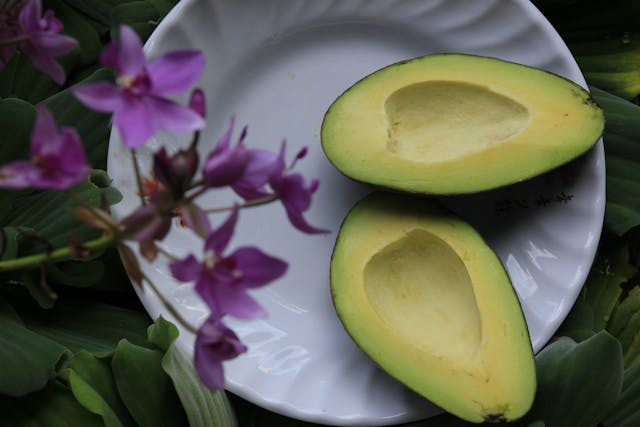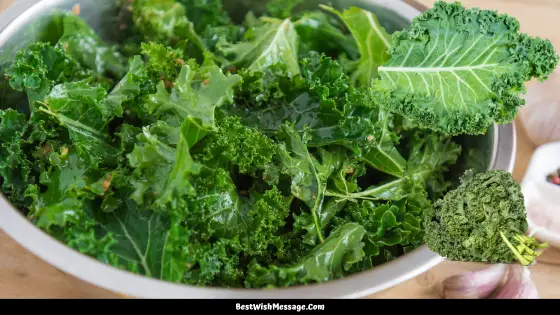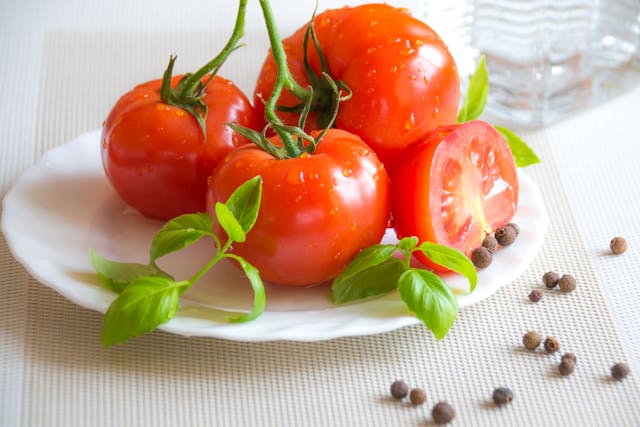Eating heart-healthy foods is essential for maintaining good cardiovascular health. Incorporating these foods into your diet can help prevent heart disease and improve overall well-being. Here are 10 nutrient-rich options to consider.
Heart-Healthy Foods to Include in Your Diet
1. Salmon
Salmon is packed with omega-3 fatty acids, which play a crucial role in reducing inflammation, lowering blood pressure, and decreasing the risk of heart disease. These healthy fats can also help lower LDL cholesterol (bad cholesterol) while boosting HDL cholesterol (good cholesterol).

- Rich Source of Omega-3s: Omega-3 fatty acids are known for their anti-inflammatory properties and their ability to reduce triglyceride levels.
- High in Protein: Supports muscle growth and maintenance, contributing to overall heart health.
- Versatile for Meals: Can be grilled, baked, or added to salads for a healthy boost.
Consuming salmon two to three times a week can make a noticeable difference in heart health over time. Opt for wild-caught varieties for the most nutrient-dense option.
2. Avocados
Avocados are a creamy, nutrient-dense fruit that is loaded with heart-healthy monounsaturated fats. These healthy fats are known to reduce harmful cholesterol levels and reduce the risk of stroke.

- Rich in Fiber: Helps in lowering cholesterol levels and maintaining healthy blood pressure.
- High in Potassium: Potassium is essential for maintaining balanced blood pressure and preventing heart disease.
- Versatile for Meals: Can be added to salads, sandwiches, or eaten as guacamole.
The antioxidants found in avocados also promote overall cellular health, making them an excellent addition to a heart-healthy diet. They provide good fats without the harmful effects of saturated fats.
3. Nuts (Almonds, Walnuts, Pistachios)
Nuts, such as almonds, walnuts, and pistachios, are heart-healthy powerhouses due to their high content of unsaturated fats, fiber, and antioxidants. Regular consumption has been linked to improved cholesterol levels and reduced risk of cardiovascular disease.
- Good Source of Healthy Fats: Rich in monounsaturated and polyunsaturated fats that lower bad cholesterol.
- High in Fiber: Fiber helps improve digestion and reduce cholesterol absorption in the bloodstream.
- Packed with Antioxidants: Combat oxidative stress, a factor contributing to heart disease.
Nuts are calorie-dense, so it’s important to consume them in moderation. A small handful a few times a week can be beneficial for heart health.
4. Berries (Blueberries, Strawberries, Raspberries)
Berries, particularly blueberries, strawberries, and raspberries, are rich in antioxidants, vitamins, and fiber, making them fantastic for heart health. These fruits are especially good at reducing oxidative stress and inflammation in the body.

- High in Antioxidants: Berries are packed with anthocyanins, compounds that protect blood vessels and reduce cholesterol oxidation.
- Rich in Fiber: Dietary fiber helps lower cholesterol and manage blood sugar levels.
- Supports Blood Circulation: Improves blood vessel function, which helps in reducing the risk of heart disease.
Enjoy berries as a snack, in smoothies, or as toppings on yogurt to maximize their heart-healthy benefits.
5. Leafy Greens (Spinach, Kale, Swiss Chard)
Leafy greens like spinach, kale, and Swiss chard are some of the best foods to incorporate into your diet for heart health. They’re full of vitamins, minerals, and antioxidants that support cardiovascular function.

- High in Vitamin K: Supports healthy blood clotting and helps prevent artery calcification.
- Rich in Folate: Reduces homocysteine levels, which can lower the risk of heart disease.
- Anti-inflammatory Properties: Reduces inflammation, which is a significant contributor to heart disease.
Incorporate leafy greens into salads, smoothies, or soups for a delicious and nutritious heart-healthy boost.
6. Olive Oil
Olive oil, especially extra virgin olive oil, is a staple of the Mediterranean diet and a key component in promoting heart health. This oil is full of monounsaturated fats, which help reduce cholesterol levels and inflammation.
- Reduces Bad Cholesterol: Helps lower LDL cholesterol levels and raises HDL cholesterol.
- Anti-inflammatory Effects: Reduces oxidative stress and inflammation in the arteries, improving heart function.
- Rich in Antioxidants: Contains polyphenols, which provide additional cardiovascular protection.
Drizzling olive oil over salads or using it for cooking can help enhance the flavor of meals while supporting heart health.
7. Legumes (Beans, Lentils, Chickpeas)
Legumes, such as beans, lentils, and chickpeas, are a great source of plant-based protein and fiber. They are also low in fat, making them an excellent choice for heart health.
- High in Fiber: Helps lower cholesterol and regulates blood sugar levels.
- Rich in Plant-Based Protein: Ideal for heart-healthy meals, especially for vegetarians and vegans.
- Supports Healthy Digestion: The fiber content helps maintain digestive health, which is linked to overall heart function.
Incorporating legumes into soups, stews, or salads can provide an affordable and nutritious way to promote heart health.
8. Dark Chocolate (70% or Higher)
Dark chocolate, particularly varieties with 70% cocoa or higher, has been shown to have heart-healthy benefits when consumed in moderation. It contains flavonoids, which help lower blood pressure and improve blood vessel function.
- Rich in Flavonoids: These antioxidants help improve blood flow and lower the risk of heart disease.
- Supports Healthy Blood Pressure: Consuming dark chocolate in small amounts may help reduce blood pressure.
- Reduces Inflammation: Helps reduce inflammation in the arteries, promoting better heart health.
Enjoy dark chocolate as an occasional treat, ideally in small quantities, to benefit from its heart-healthy properties.
9. Whole Grains (Oats, Quinoa, Brown Rice)
Whole grains, such as oats, quinoa, and brown rice, are an essential part of a heart-healthy diet. They are high in fiber, which helps regulate blood sugar levels and reduce cholesterol levels.
- Rich in Fiber: Soluble fiber from whole grains helps lower LDL cholesterol.
- Stabilizes Blood Sugar: Helps prevent spikes in blood sugar levels, which is important for heart health.
- Supports Healthy Digestion: Regular consumption of whole grains promotes a healthy gut, which is linked to reduced cardiovascular risk.
Replace refined grains with whole grains to improve heart health and overall nutrition.
10. Tomatoes
Tomatoes are rich in vitamins, minerals, and antioxidants, especially lycopene, which has been linked to improved heart health. They are also low in calories and high in water content, making them an excellent choice for weight management and cardiovascular health.

- High in Lycopene: This powerful antioxidant has been shown to reduce the risk of heart disease by improving cholesterol levels.
- Rich in Potassium: Helps regulate blood pressure and reduce the strain on the heart.
- Supports Blood Vessel Health: Lycopene also contributes to maintaining the flexibility and strength of blood vessels.
Enjoy fresh tomatoes in salads, sauces, or as a snack for a heart-healthy option.
Conclusion: Incorporating these heart-healthy foods into your daily meals can make a significant impact on your cardiovascular health. A balanced diet filled with these nutrient-rich options, combined with regular physical activity, can help prevent heart disease and improve overall health.
